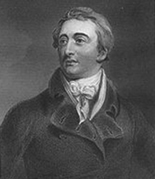Bentinck, Lord William
Bentinck, Lord William (1774-1839) Governor General of India from 1828-1835. Born on 14 September 1774, Lord William Cavendish Bentinck first came to India as governor of Madras in 1803 and was recalled in 1807 on account of the mutiny of the sepoys at Vellore in 1806. After about two decades he was appointed the Governor General of Bengal and took over charge in 1828. His position was later redesignated as the Governor General of India by the charter act, 1833. The court of directors supported Bentinck, as he was a man of peace, of discipline and of economy. His administration in India was marked by peaceful activities. Lord William Bentinck generally followed the policy of non-interference and' non-aggression.

But in 1831 prolonged misgovernment in Mysore forced him to bring the state under British administration. Bentinck, as a matter of belief, concentrated on studying the condition of the Indian empire, examining the administration, inspecting the army and making reforms in all fields. As the commander-in-chief he visited all the cantonments and took steps to strengthen discipline and economy in civil and military services. He reduced the batta or the allowance given to troops when on active service and saved about one and a half million pound. Bentinck reformed the land revenue system in the Northwest Frontier province and established a board of revenue there.
Bentinck abolished the provincial courts of appeal and circuit set up by charles cornwallis, which had been largely responsible for huge arrears of cases by dilatory procedure. Cornwallis had also blocked the appointment of Indians as judges except in the lowest grades. Bentinck reformed this process by employing many Indians as subordinate judges with enhanced salaries in the judicial services and increased the jurisdiction of the Indian judges. He introduced the post of Divisional Commissioner to supervise the activities of the collectors and the magistrates and replaced Persian by the local languages in the lower and by English in the higher courts. He also combined the post of the District Magistrates with that of the District Collectors and appointed Indians to executive positions like those of Deputy Magistrates. The permission to use the vernacular languages in the lower courts made justice easily accessible to all kinds of people.
The substitution of English for Persian as the language of the higher courts and of the government business gave encouragement to the study of English and the spread of western education. In a bid to educate the Indians on modern lines thomas babington macaulay pleaded for the spread of English education and western ideas. Accordingly Bentinck took steps to promote the study of English literature and science. Schools were opened in many places and a medical college was established in 1835 at Calcutta to train Indian doctors.
He then turned to social reforms and abolished the practice of sati, ie burning of Hindu windows on funeral pyres of their dead husbands, a long standing practice among the Hindus who regarded it as an act of conjugal piety. Bentinck made the practice illegal and suppressed it firmly though many orthodox Hindus regarded it as an interference with their religion.
Bentinck took steps to suppress the ruthless thugs, bands of miscreants who formed secret groups and travelled over the country garbed as merchants or pilgrims. They caught unprotected travellers, rob them and strangled them to death. They were great menace in central India, often supported by powerful landlords who shared the booty. Colonel William Sleeman succeeded in uprooting them by inflicting exemplary punishments. Bentinck also suppressed child sacrifice and infanticides.
During his time in 1833 the Company's Charter was renewed for another 20 years, which, among other things, did away with the Company's monopoly of its China trade. The Company henceforth became exclusively an administrative body. It also changed the title of the Governor General of Bengal to the Governor General of India. Bentinck had a forward looking mind and to encourage free trade he abolished transit duties, developed steam transport by river and ocean, encouraged tea and coffee cultivation and production of iron and coal, and planned a network of roads, drainage and irrigation of canals. For his liberal ideas and reform activities Lord William Bentinck earned the admiration of the Indians. He retired in March 1835 and died in England on 17 June 1839. [KM Mohsin]
